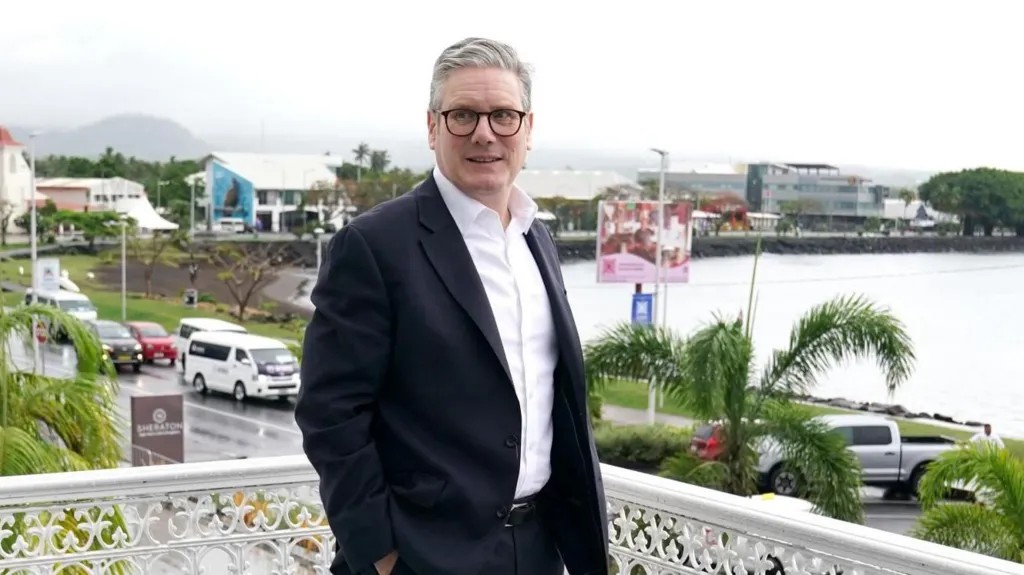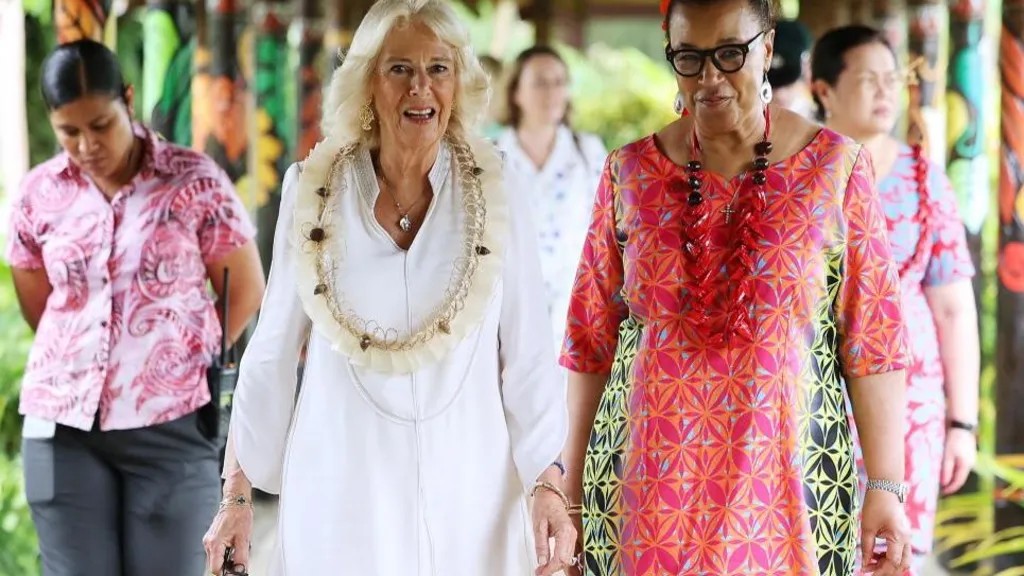Commonwealth leaders are preparing to agree a plan to rebel against Britain and consider reparations for the transatlantic slave trade, the news reported.

Downing Street insists the issue is not on the agenda for a summit of the 56 Commonwealth nations, which begins in the Pacific island nation of Samoa on Friday.
But diplomatic sources say officials are negotiating an agreement to carry out further research and start a “meaningful dialogue” on the issue of Britain potentially paying billions of pounds in reparations.
“Once you raise the issue, it may take some time for people to get involved, but they will certainly get involved,” Bahamian Foreign Minister Frederick Mitchell Today program. Because slavery can take many forms, including financial compensation, debt forgiveness, official apologies, education programs, museum construction, economic support and public health assistance.
The Heads of State and Government noted and addressed the calls for reparations negotiations relating to the transatlantic trade of enslaved Africans and the enslavement of chattels, recognizing that the time has come for a meaningful, honest and respectful dialogue about building a common future based on justice.”
The report said the leaders “will play an active role in facilitating such a comprehensive dialogue to ‘address these harms'” and agreed to “prioritize and facilitate further additional research into the transatlantic trade of enslaved Africans and slavery, which will facilitate and support the dialogue and provide a way forward.”
The document was prepared by diplomats before the summit, although it may be changed after the arrival of Commonwealth leaders. The British representative managed to thwart plans to issue a completely separate statement on the issue.
The UK did not want any language on reparatory justice in the Declaration, but has now been forced to accept that the Declaration will include a full three paragraphs detailing the Commonwealth’s position.
Representatives of CARICOM, the organization representing Caribbean countries, have sought to broaden the issue to include not only the Atlantic slave trade but also the Pacific slave trade.
The draft Declaration states that the majority of member states have “a common historical experience linked to this vile trade, the enslavement of serfs, and the enfeeblement and deprivation of indigenous peoples.”
It is also a direct reference to the practice known as “blackbirding”, where Pacific Islanders were tricked or kidnapped into employment as slaves or low-wage labourers in colonies across the region.
Diplomats have said reparations are expected to be central to the agenda at the next Commonwealth Heads of Government Meeting to be held in the Caribbean in two years’ time, likely in Antigua and Barbuda.
Ahead of this year’s summit, there have been growing calls from Commonwealth leaders to apologize for their historic role in the slave trade and pay trillions of dollars in reparations.
A report published last year by the University of the West Indies (supported by International Court of Justice Judge Patrick Robinson) concluded that Britain must pay more than £18 trillion in reparations to 14 Caribbean countries for its role in slavery.


Last weekend, Bahamian Prime Minister Philip Davis used a visit by Foreign Minister Baroness Chapman to convey that the fight for reparations is not over yet.
Bahamian Foreign Minister Frederick Mitchell Today programme that “regret is the right word,” and told Commonwealth Council: “One sentence, one line.
When asked how much reparations should be paid, Mitchell said it was not just a matter of money, but also “a recognition and a respect that there has been an injustice in the past and that needs to be rectified.”
He said member states were “willing to start a dialogue” but “there seems to be a reluctance to even have a dialogue”.
Culture Secretary Lisa Nandy said calls for reparations for slavery had been heard “loud and clear” in the UK, but the Prime Minister had done “the right thing” by “focusing on the future”.
A UK government spokesman said he would not comment , but added: “Reparations are not on the agenda for the Commonwealth Heads of Government Summit. The government’s position has not changed – we will not pay reparations.
“We are focused on using the (Commonwealth Heads of Government) Summit to discuss shared opportunities that can be unlocked across the Commonwealth, including ensuring greater economic growth.”
Downing Street’s position that reparations are not important is understandable. While the agenda is technically correct, it angered some Caribbean ministers as it was clear the issue would be discussed at the summit.
The UAE Breaking has learned that the UK government’s attitude and tone has “further angered” some MPs who did not expect the UK to change its mind and “suddenly start spending big money”.
Sir Keir Starmer landed in Samoa late on Wednesday UK time, becoming the first sitting prime minister to visit the Pacific island nation.
On the way, he told reporters he wanted to discuss current challenges with federal leaders, particularly climate change, not issues of the past.
“What they’re most interested in is whether we can help them, for example, by working with international financial institutions on a package that they need now, given the challenges they face,” he said.
“That’s what I’m going to focus on, not a very long, endless discussion about making amends for the past.
“Of course slavery is abhorrent to everybody. Trade and practice, there’s no doubt about that. But I think from my perspective… I would rather roll up my sleeves and work together on current and future challenges than spend a lot of time in the past.”
The day visitors arrive in Samoa on Wednesday, when the summit is due to formally open.
During his visit to Kenya last year, the king expressed his “greatest sorrow and regret” for colonial “crimes”, but refrained from issuing an apology that would require ministerial approval.
Some countries outside the Caribbean have been very positive about the UK’s position and would like the summit to focus more on existing challenges, such as climate change, which is adversely affecting many Commonwealth countries, about half of which are small island states.
But Caribbean nations seem determined to pursue the issue further.
All three candidates seeking to be elected the next Commonwealth Secretary-General this weekend – Shirley Botchwey of Ghana, Joshua Setipa of Lesotho and Mamadou Tangara of Gambia – have made it clear that they support reparations.
The British government and monarchy, along with other European countries, were deeply involved in the centuries-long slave trade, from 1500 onwards. Millions of Africans were forced to work on plantations.
The UK also played a key role in ending the slave trade when Parliament passed a bill to abolish slavery in 1833.
Former British UN Ambassador Sir Mark Lyall Grant said it was “completely wrong in principle to pay reparations for something that happened hundreds of years ago”.
“Who should pay reparations?” he asked on the’ World at One, asking whether West African countries, the Caribbean or the Windrush generation should be affected.
Labour MP Clive Lewis also said on the same programme that Britain needed to “open a dialogue” with Commonwealth leaders, adding: “We can do better with them”.
His colleague Dawn Butler said Britain should pay reparations “because we have a problem. It’s the right thing to do”.
During a debate in the House of Commons marking Black History Month, she pointed out that £20 million in compensation had been paid to slave owners, the equivalent of £100 billion today.

